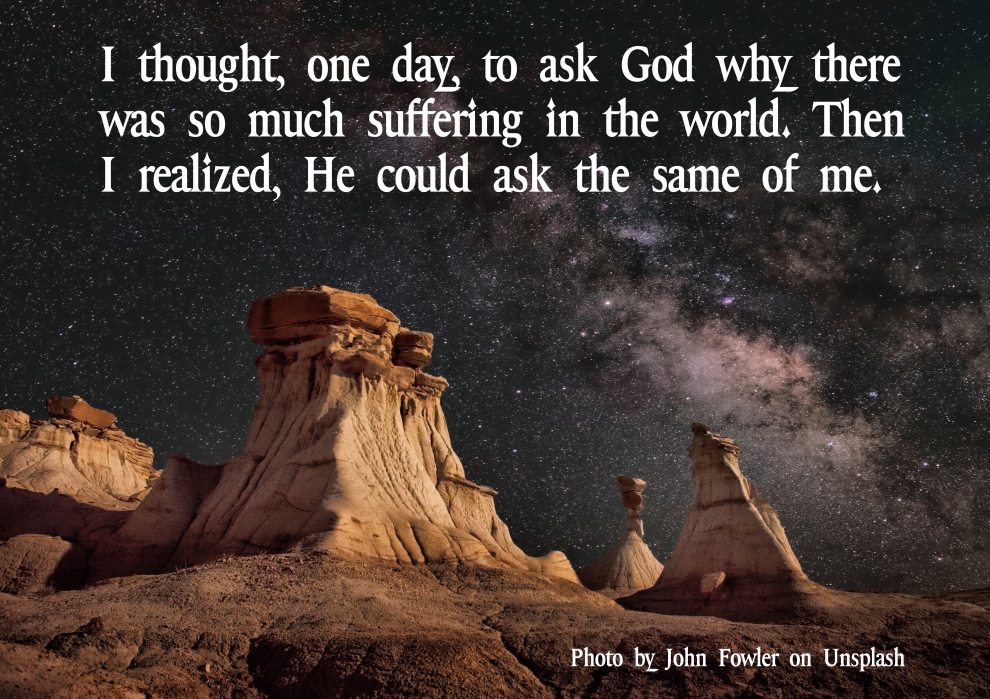The moment has arrived. Redefining Job and the Conundrum of Suffering was released on June 11, 2020. It is available in hardback, paperback, and Kindle. Current outlets include the following:
Wipf & Stock, the publisher, always provides a 20% discount.
https://wipfandstock.com/redefining-job-and-the-conundrum-of-suffering.html
Amazon.com
https://www.amazon.com/Redefining-Conundrum-Suffering-Victoria-Adams/dp/1725262444
Barnes and Noble
I will also be carrying my own inventory (hard covers) within the next 30 days.
Here is a link to an interview with Kyle Pauly at KXRO in Aberdeen:
Here is what people are saying:
“I have been teaching the biblical book of Job for many years and Redefining Job and the Conundrum of Suffering is the most comprehensive treatment of the book I have seen. Adams takes up the problem of suffering and evil with preliterate cultures and moves methodically through the history of religious and philosophical approaches to the problem. She situates Job within its historical and cultural context, and also brings forward the book’s handling of questions that are no less relevant today than they were centuries ago. Redefining Job and the Conundrum of Suffering is an essential reference for professors, students, and ministers dealing with the book of Job. It is also a valuable resource for all of us who struggle to make sense of unearned suffering in the world. In Redefining Job and the Conundrum of Suffering, Adams has baited her hook for Leviathan.”
—VIC SIZEMORE Author of Goodbye My Tribe: An Evangelical Exodus
“Steeped in traditional interpretations, philosophically attuned, psychologically sensitive, scientifically informed, Adams—in her modern Christian perspective on Job— seeks a theological understanding of suffering that is considerate of and perhaps even comforting to people who suffer. A special feature is Adams’ attention to outlooks and sources behind and beyond the Abrahamic religions.”
—EDWARD L. GREENSTEIN Author of Job: A New Translation
“Victoria Adams has taken on the issue of suffering in the world by centering her topic around the classic tale of Job and the scholarship surrounding this beloved, ancient story. She demonstrates a mastery of the published material, provides many topics for class study and discussion; however, her most accomplished task in this book is centering the story of Job and the topic of suffering within the person who suffers. In doing so, Victoria accomplishes two things: she challenges all who suffer to give voice to their experience and, through honest communication with the creative forces religion calls God, to seek restoration and new life from the experience of loss and injustice.”
—CHRISTINE KESTERSON Prison chaplain and founder of Immaculata Home, Inc.
“Remember as a kid how delighted you were to occasionally receive that special sixtyfour-crayon box of Crayola crayons, the one with the built-in sharpener? That’s what Victoria Adams’ book on Job is to anyone fascinated with theology, history, literature, or drama. She offers more nuances and shades of color to understand this timeless tale than you can imagine. This palette of interpretation will serve scholars and lay readers alike.”
—MARK WINGFIELD Executive Director and Publisher of Baptist News Global
“This scholarly yet readable work illuminates the rich social context and profound interpretive legacy of this paradigmatic tale of suffering, faith, resilience, perseverance, and ultimately, joy in the human condition. Adams invites us to rethink what it means to lay our trust in God in the midst of our brokenness. She calls us to develop tenets to live by, through which our own and Job’s suffering opens up spaces of compassion, love, and caring as we call ourselves to account for harm, blame, and complacency in crafting a meaningful life.”
—ZAYN KASSAM John Knox McLean Professor of Religious Studies, Pomona College
“This is a masterfully careful and deeply thoughtful look at one of the most important texts on suffering in all of human literature, and one of the most challenging stories in the Bible. I can’t imagine a more complete or illuminating treatment of how we can best understand the famous and powerful book of Job. A wonderful book and highly recommended!”
—TOM MORRIS Author of Our Idea of God
In other news, the Reading Alcove will be moving. The new site is already under construction. Don’t worry, there will be plenty of information here to lead you to the new site. I’ve made the step to be ensure I can offer secure links for purchases and to broaden my options. Moving will be a task (technical stuff makes it difficult to just transfer things in bulk).
The journey has only just begun.








You must be logged in to post a comment.